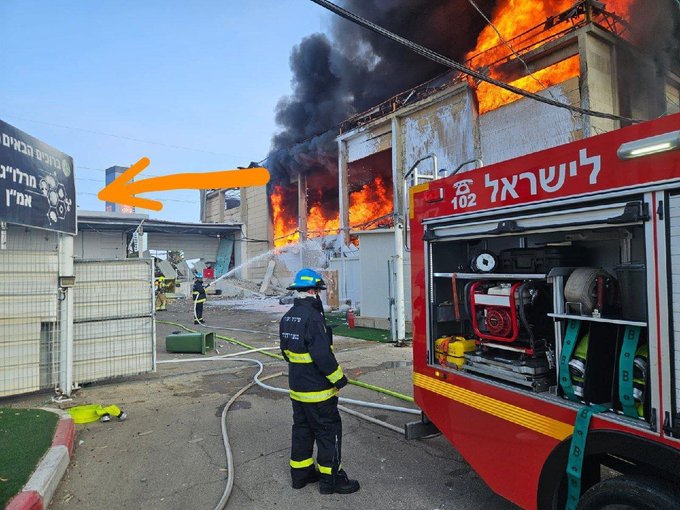The Iran Israel conflict entered a deadly new phase early Tuesday when Iran launched a fresh round of missile strikes. These attacks were part of what Tehran calls its “legitimate retaliation” against repeated Israeli aggression.
Israeli media reported a missile strike near the Mossad headquarters in Tel Aviv. Large columns of smoke rose into the sky, spreading fear and confusion among residents. The Israeli public was rattled by the sudden escalation.
Iran’s Islamic Revolutionary Guard Corps (IRGC) confirmed that this was only the beginning. In a statement, the IRGC declared that its new missile wave was stronger and more precise than previous operations. They described the attack as a show of strength and advanced military capability.
Tehran claimed that the missiles successfully struck strategic Israeli targets, including intelligence and military sites. Locations along Israel’s central coast were among those hit. Iranian military officials stressed the attacks were carried out with careful precision to avoid harming civilians.
The IRGC insisted that unless Israel stops its aggression, more “measured and lawful” responses will follow. Iran said it launched the strikes in self-defense, pointing to recent Israeli operations inside Iran, including the assassination of senior commanders.
Footage shared online showed a projectile hitting a residential street in Ibthan. In another area, Herzliya, a parked bus caught fire after being struck. These visuals shocked viewers and fueled global debate over the intensifying hostilities.
Despite the missile barrage, Israeli emergency officials reported no deaths. However, Iran hailed the operation as a “strategic breakthrough,” claiming it disrupted Israeli security operations and sent a warning of further escalation if provoked.
Meanwhile, Israel’s retaliation was deadly.
In Iran’s western province of Lorestan, 21 civilians lost their lives in Israeli airstrikes. The attack was confirmed by an Iranian Member of Parliament. Iranian media also reported a projectile hitting a checkpoint in Kashan, located in Isfahan province. Three people died, and four others were injured. The incident was confirmed by Akbar Salehi, a senior security official.
Tasnim and ISNA news outlets also reported on the tragedy, though they offered limited details. Iranian sources say more than 220 people have died in Israeli strikes across Iran since the latest phase of the Iran Israel conflict began. These include at least 70 women and children.
In another major development, Israel targeted Iran’s national broadcaster.
On Monday, during a live show, a powerful Israeli airstrike hit the building of Islamic Republic of Iran Broadcasting (IRIB) in Tehran. Masoumeh Azimi, a staff member, died from injuries caused by the shockwave. The strike came while the IRIB political affairs segment was being aired. At least four projectiles hit the facility.
Despite the chaos, anchor Sahar Emami continued the broadcast. As the walls shook, she declared “Allahu Akbar” on live television. Her brave moment quickly went viral, drawing widespread admiration on social media.
Several other media workers were injured. IRIB’s news director, Hassan Abedini, came on air soon after to condemn the attack. He called it a “satanic act of terror.”
Iran’s Foreign Ministry strongly criticized the attack, labeling it a war crime. Officials called on the United Nations to hold Israel accountable for targeting media staff and infrastructure.
Israel’s Ministry of Military Affairs admitted it was behind the strike.
Since the Gaza conflict intensified in October 2023, over 250 journalists have been killed, mostly in Gaza. Now, this attack on Iranian media highlights what many are calling a growing pattern of violence against reporters.
The United Nations Secretary-General António Guterres condemned the strike. He reminded the world that journalists and medics are protected under international law. The Committee to Protect Journalists (CPJ) also denounced the attack, warning it could embolden further aggression against media outlets.
CPJ called for an immediate stop to the violence. The organization stressed that reporters must be allowed to work freely and safely, especially during war.
As the Iran Israel conflict spirals, the region watches with growing fear. The war has already taken hundreds of innocent lives and shows no sign of slowing down. With direct hits on civilians, intelligence centers, and now media outlets, the line between battlefield and civilian life continues to blur.


